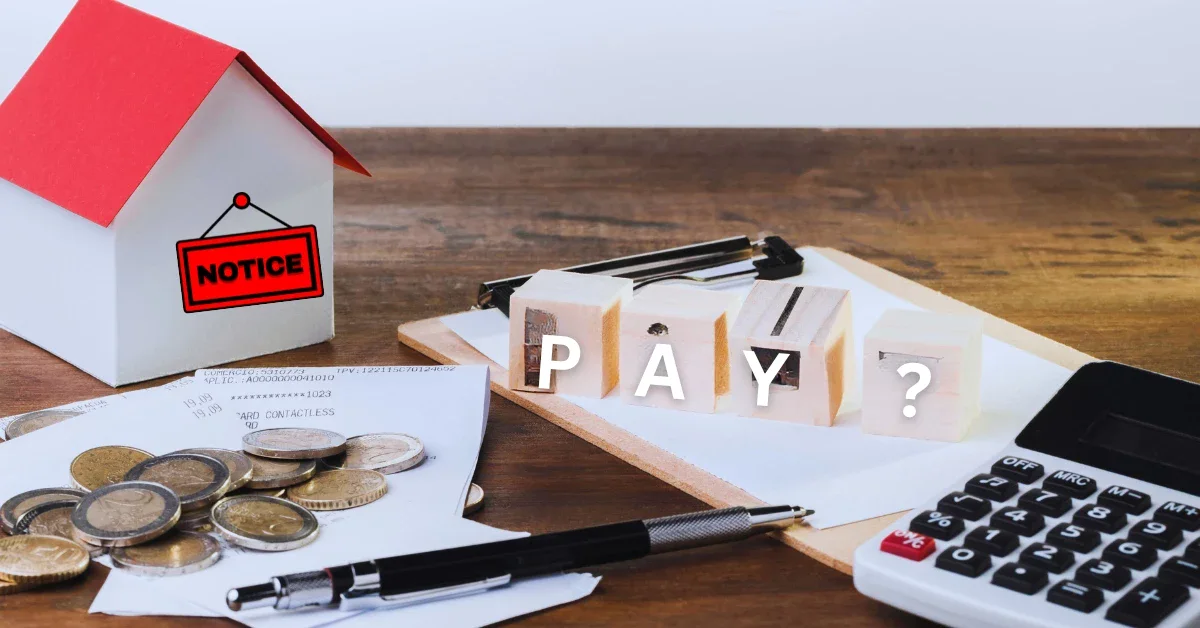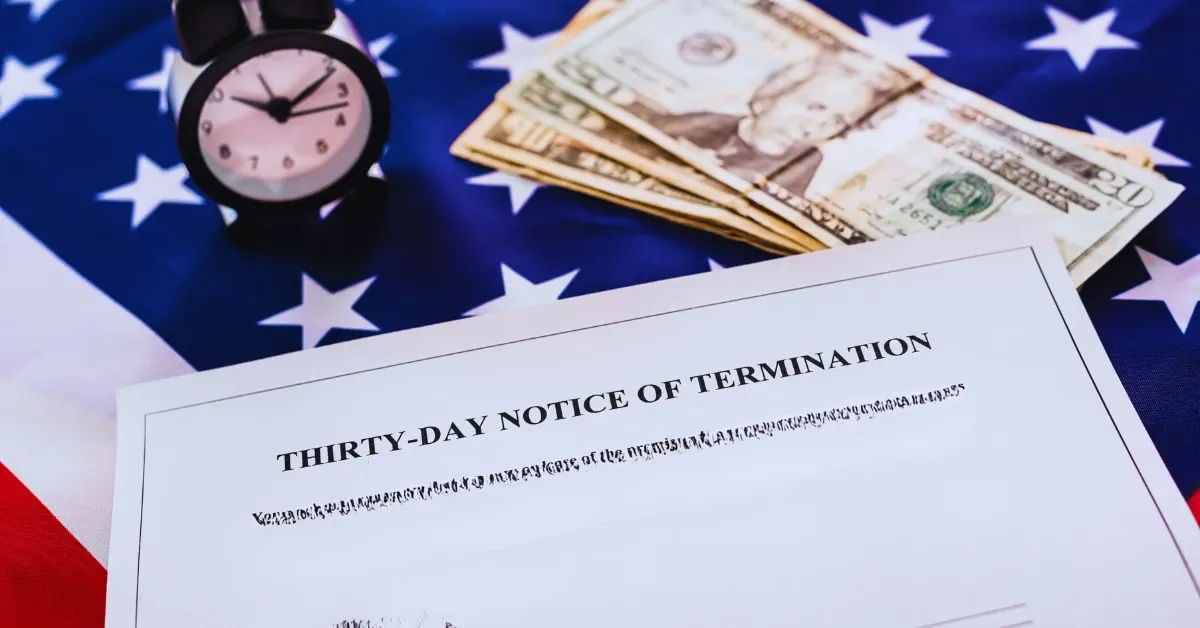When You Give a 30-Day Notice Do You Still Have to Pay Rent?
Yes, when you give a 30-day notice, you are still required to pay rent for the entire 30-day notice period. Giving notice means that you are informing your landlord, in writing, that you plan to move out of the rental property at the end of the notice period.
During this 30-day notice period, you are responsible for paying rent, even if you move out before the end of the month. This is because the notice period gives your landlord time to find new tenants without losing income.
Failure to pay rent during the notice period could result in legal consequences and damage to your credit score.

What Is A 30-Day Notice For Rent And What Does It Mean?

Definition Of A 30-Day Notice
A 30-day notice is a legal document that a tenant presents to their landlord, announcing their intention to vacate the rental unit within 30 days.
Essentially, it means that the tenant will move out of the unit within 30 days of serving the notice, and this timeline can vary from one state to another.
Reasons For Giving A 30-Day Notice
There are several reasons why a tenant may opt to give their landlord a 30-day notice to vacate a rental unit. These include:
End of the lease agreement
When a lease agreement comes to an end, a tenant may choose to give a 30-day notice if they do not wish to renew or extend it.
Purchase of a new home
If a tenant has bought a new house, they may need to vacate their rental unit.
In such cases, a 30-day notice may be issued, allowing them enough time to move and settle into their new home.
Job transfer
If a tenant receives a job transfer outside of their current rental unit’s location, they may need to vacate the unit, and hence, a 30-day notice would be necessary.
Health concerns
In some cases, tenants may need to vacate a unit due to health concerns arising from the living environment.
Legal Requirements For Serving A 30-Day Notice
When serving a 30-day notice, tenants should adhere to several legal requirements outlined in the state’s tenant-landlord laws. These include:
Proper notice period
The tenant should serve the notice as per the required time period stated in the lease agreement or state laws.
Delivery method
The tenant should deliver the notice via a method that is legally recognized and agreed upon in the lease agreement or state laws, such as certified mail, delivery by a third party, or in person.
Content of the notice
The notice should contain specific details, including the tenant’s name, address of the rental unit, reason for vacating, move-out date, and signature.
Remember, a 30-day notice may not cancel the tenant’s lease obligations, and they may still be required to pay rent and adhere to other lease terms within the 30-day notice period.
What Happens When You Give A 30-Day Notice?
Giving a 30-day notice to vacate a rental property is a common practice in many renting situations.

However, tenants often wonder what happens after they give notice, especially when it comes to paying rent for the notice period.
To help clarify this, we will discuss the responsibilities of both the tenant and the landlord during the notice period, as well as what happens if the tenant fails to vacate the property after the notice period.
Understanding The Notice Period
The notice period is the amount of time the tenant must provide their landlord prior to moving out of the rental property.
In most situations, it is 30 days, but it may vary according to the lease agreement or state laws.
The purpose of the notice period is to give the landlord enough time to find a new tenant and to allow for a smooth transition.
During this period, the tenant is still required to pay rent, even if they have already moved out. Key points to understand about the notice period:
- The notice period is usually 30 days, but it may vary based on the lease agreement or state laws.
- The purpose of the notice period is to give the landlord enough time to find a new tenant.
- The tenant is required to pay rent for the duration of the notice period, even if they have already moved out.
Responsibilities Of The Tenant And Landlord During The Notice Period
During the notice period, both the tenant and landlord have specific responsibilities.
The tenant is responsible for paying rent until the end of the notice period and for leaving the rental property in good condition.
On the other hand, the landlord needs to make reasonable efforts to find a new tenant and maintain the rental property in good condition.
Key responsibilities of the tenant and landlord during the notice period:
Tenant responsibilities:
- Pay rent until the end of the notice period.
- Leave the rental property in good condition.
Landlord responsibilities:
- Make reasonable efforts to find a new tenant.
- Maintain the rental property in good condition.
What Happens If The Tenant Fails To Vacate The Property After The Notice Period?
If the tenant fails to vacate the property at the end of the notice period, the landlord may take legal action to forcibly remove them.
This process is known as an eviction, and it can be lengthy and costly for both parties.
In addition, the tenant may be responsible for paying rent for any additional days or weeks they stay on the property.
Key points to understand when a tenant fails to vacate the property after the notice period:
- The landlord may take legal action to remove the tenant, known as eviction.
- The eviction process can be lengthy and costly for both parties.
- The tenant may be responsible for paying rent for any additional days or weeks they stay on the property.
When a tenant gives a 30-day notice to vacate a rental property, they are still responsible for paying rent for the notice period, even if they have moved out.
During this period, the tenant and landlord have specific responsibilities to maintain the rental property and ensure a smooth transition.
If the tenant fails to vacate the property after the notice period, the eviction process may be initiated, causing additional expenses and legal issues.
FAQs
Can I Stop Paying Rent After Giving A 30-Day Notice?
Yes, you are required to pay rent for the entire notice period even if you vacate early.
What Happens If I Don’t Pay Rent During The 30-Day Notice Period?
Failure to pay rent during the notice period could result in legal action including eviction.
Can My Landlord Charge Me For Damages After I Move Out?
Yes, your landlord can charge you for any damages beyond normal wear and tear, even after you move out.
Can I Break My Lease Without Giving 30 Days’ Notice?
It depends on the terms of your lease agreement. You may face penalties or legal action for breaking your lease prematurely.
Conclusion
Don’t sweat it if you’ve handed in your 30-day notice. Yes, you’ll still have to cover your rent for this period.
It’s a customary practice that safeguards your rights and ensures a smooth transition, giving you the leeway to focus on your moving plans and future endeavours.